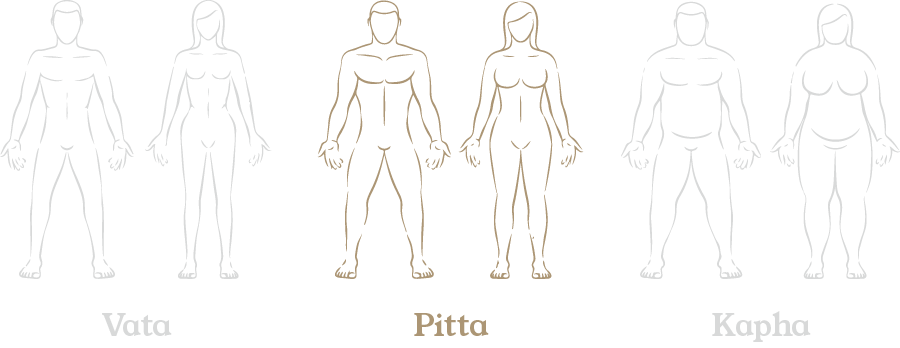So you’re a pitta…

When in balance you are:
Determined, Ambitious, Energetic, Focussed, Sharp minded, Good memory and ability to concentrate, Organised and efficient, Decisive, Entrepreneurial, Motivated, Passionate, Strong leadership skills, Good digestion
Signs of imbalance:
Irritability, Anger, Feeling frustrated and impatient; Feeling too hot, Becoming overly competitive; Being controlling; Jealousy; Dominating others; Criticising and being judgemental; Intolerance; Going to extremes; Excessive behaviours; Skin rashes; Boils; Inflammation; Loose bowels; Stomach ulcers; Heartburn; Fevers; Urinary Tract infections; Liver or gallbladder issues

Key advice:
MODERATION – Pitta constitution people tend towards an ‘all or nothing’ approach to life. You will often have both the will and energy to achieve the things you put your mind to, however this extreme approach to things, whether it’s work, exercise or chilli often leads to major burn out.
Moderation is the key to health if Pitta features prominently in your constitution.
Diet guidelines:
Pitta is balanced by a diet of fresh, whole foods (both cooked and raw) that are cooling, hearty, energizing, comparatively dry, and high in carbohydrates. These foods calm pitta by decreasing internal heat, preventing inflammation, balancing the digestive fire, grounding the body, and by absorbing excess liquid and oil.
Below are some general guidelines that can help turn your food into medicine:
• Favour cool over warm or hot foods
• Favour dense, grounding and nourishing over light
• Favour dry and dense over oily and liquid
• Favour mild over spicy
• Eating more bitter, sweet, and astringent foods
• Eating less pungent, salty, and sour foods
Foods to favour:
Coconut, dates, figs, melons, papaya, pears, pineapple, plums, raisins, strawberries, avocado, pumpkin, potato, cucumber, cabbage, celery, kale, cauliflower, zucchini, lettuce, raw spinach, parsnip, peas, barley, couscous, quinoa, rice, oats, granola, amaranth, kidney beans, lentils, chickpeas, tofu, cows milk, yoghurt, soft goats cheese (unsalted), unsalted butter, coconut, flax seeds, pumpkin seeds, sunflower seeds, almonds (soaked and peeled), Chicken, freshwater fish only, egg whites, turkey, venison, coconut oil, flaxseed oil, olive oil, primrose oil, ghee, walnut oil
Foods to avoid:
Cranberries, grapefruit, sour oranges, kiwi fruit, persimmons, eggplant, garlic, green chili, horseradish, tomatoes, turnips, hot peppers, buckwheat, polenta, brown rice, yeasted breads, rye, muesli, miso, soy sauce, fermented foods, buttermilk, sour cream, hard cheeses, cashews, macadamias, pine nuts, tahini, peanuts, chia seeds, brazil nuts, beef, duck, egg yolks, tuna, sardines, salmon, lamb, pork, saltwater fish, almond oil, sesame oil, apricot oil
What to do when you feel unbalanced:
Reduce your coffee in-take; keep your alcohol moderate; favour cool, raw and bland foods for a while; take a cool shower or go for swim; walk barefoot on green grass; gaze upon the moon at night (try it!); add more coriander, coconut and cucumber to your diet; do things just for fun rather than to win; approach exercise moderately; avoid hot environments (saunas, steam rooms, hot yoga etc); apply coconut oil to your skin
Helpful herbs:
Triphalaguggul – can help ensure proper stool formation, reduce inflammation and remove toxins from the body
Manjishta – cleans and cools the blood to help prevent infections, supports the liver and improves skin issues
Keep this advice handy
Want to learn more? Need advice?
